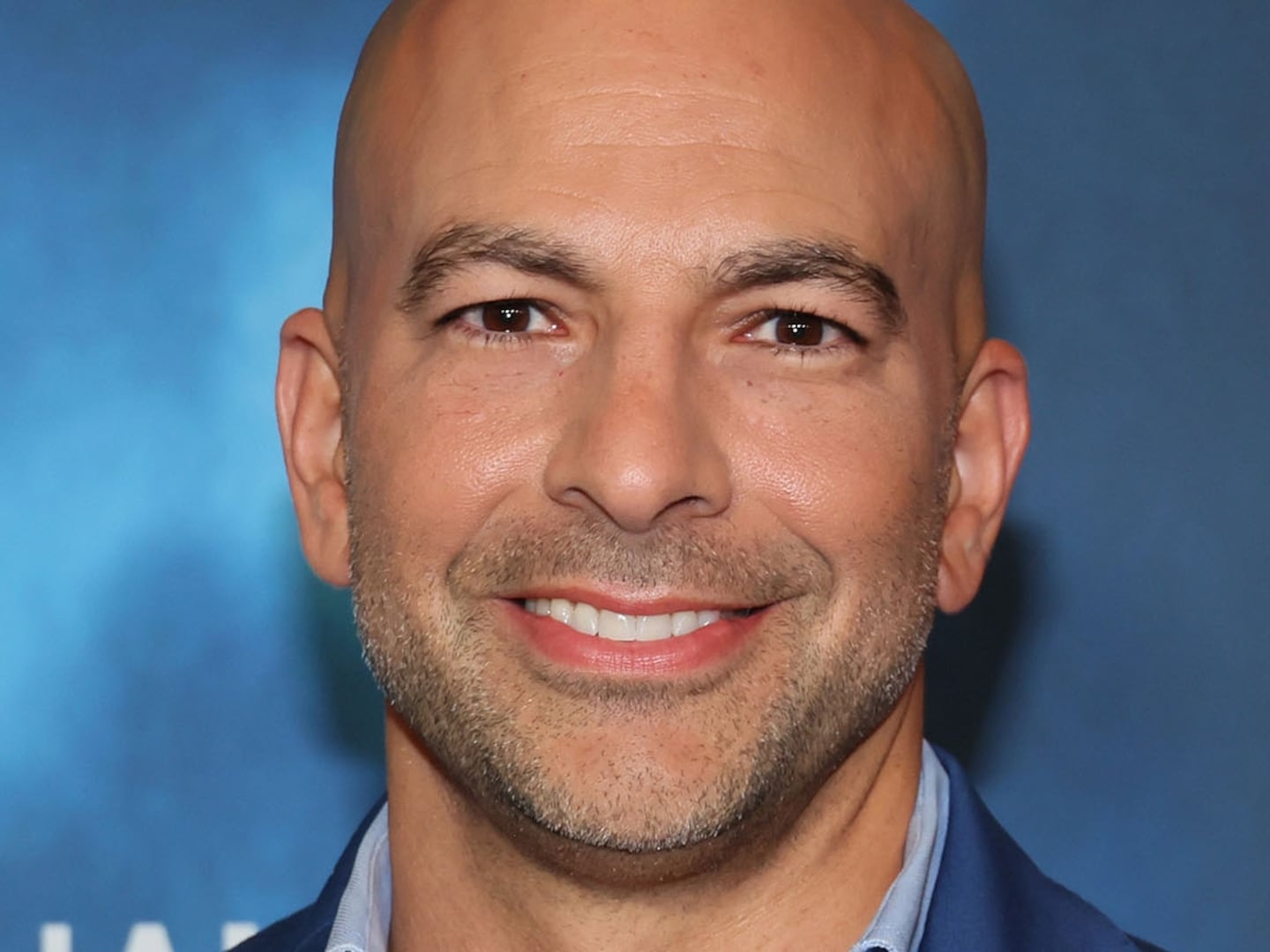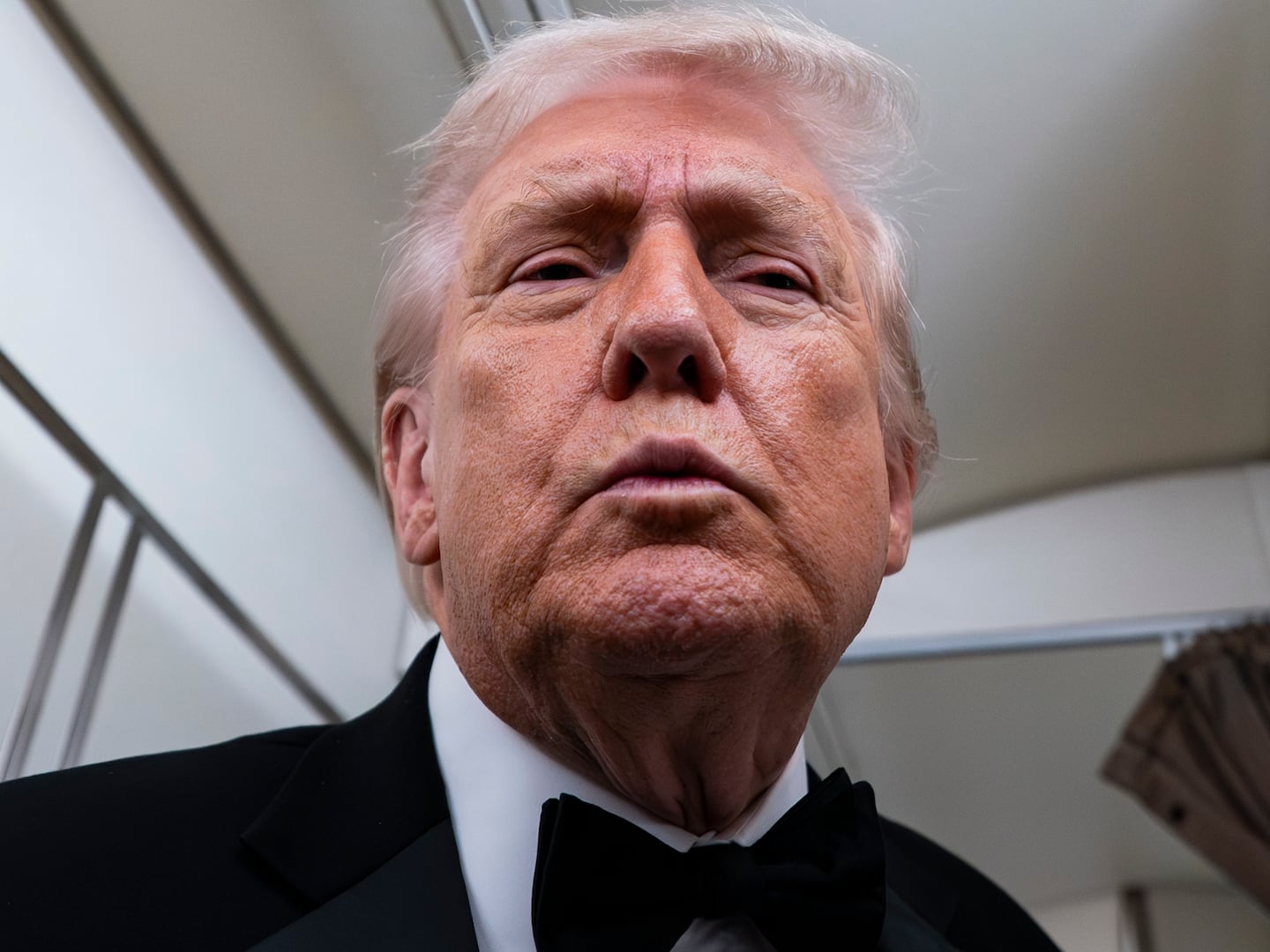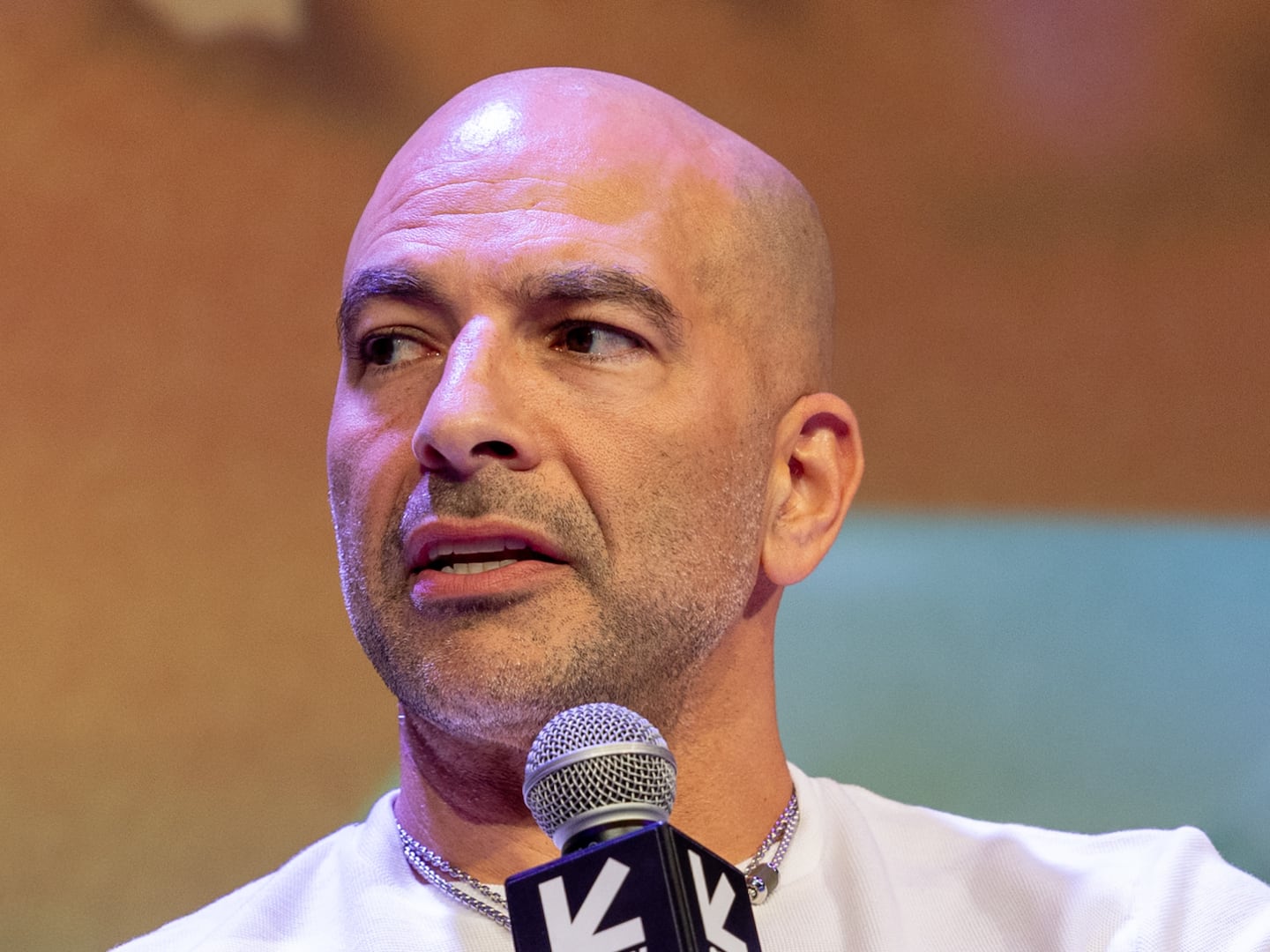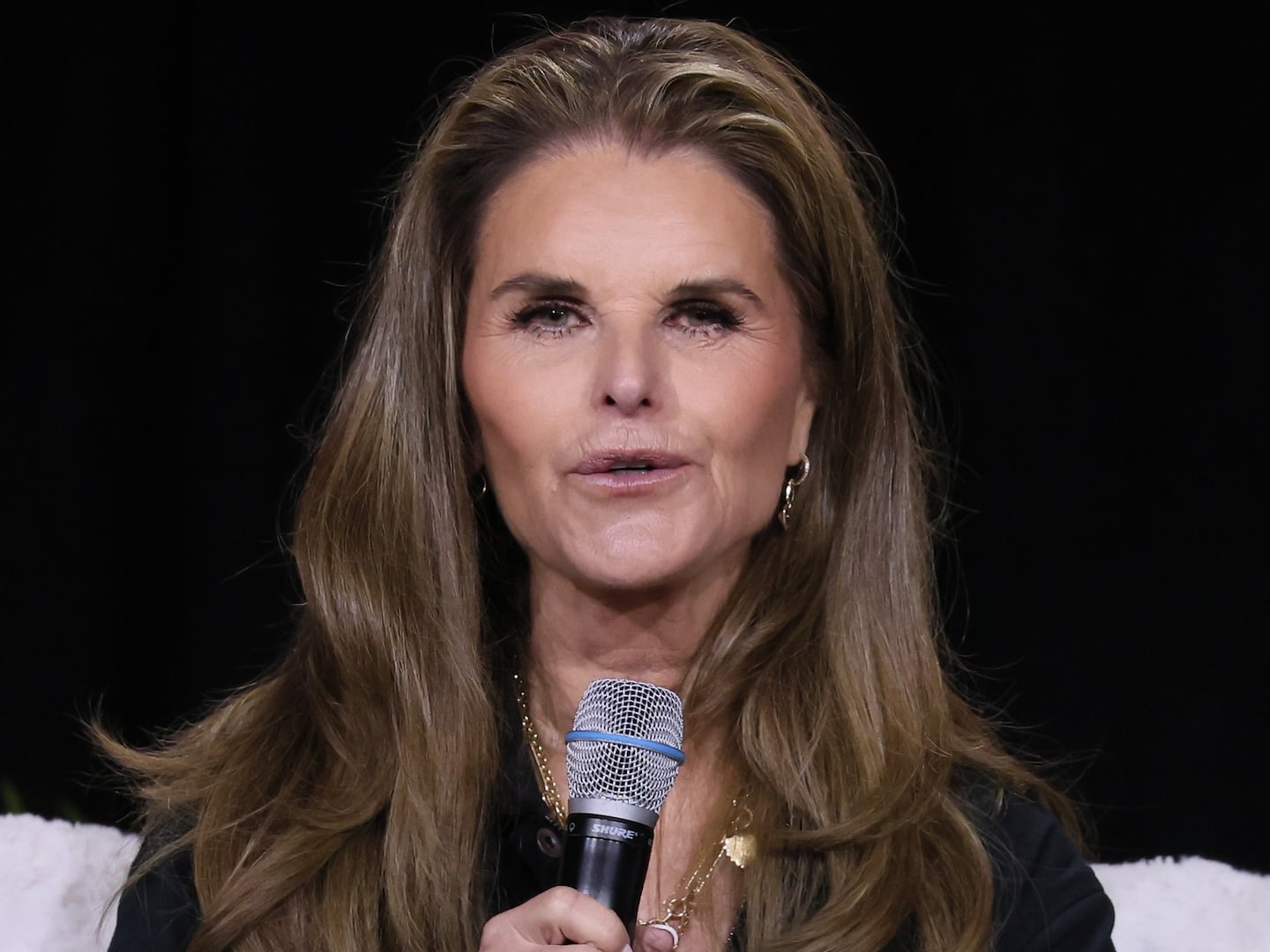
The former president meant to talk up his philanthropy on Monday night—but first he had a message for disaffected Democrats planning to stay away from the polls this November: Get ready for a return to 1994 if you do. Dana Goldstein on what Clinton had to say about the chances for Mideast peace, Rwanda’s president, and a second stimulus. Plus, view our full coverage of the CGI.
Looking thinner than ever and holding both a Diet Coke and a Starbucks coffee, Bill Clinton strode into a conference room at the Sheraton New York on Monday night, with the goal of promoting his philanthropic activities to a group of about 20 journalists.
And he did. But first the 42nd president spent about half an hour discussing a topic that seemed very much at the forefront of his mind: the midterm elections. Clinton railed against public ignorance, saying he did not think voters on either the left or right understood the Obama administration’s record on issues such as health-care reform, financial regulation, and curbing student-loan abuses.
“Some people on the left are so tender-minded and dogmatic that they think in abstractions and principles instead of reality… Clinton’s mission is actually getting things done.”
Disgruntled Obama supporters planning to sit out the midterms are making “a horrible mistake,” he said. “Like everything else you do when you’re mad, there’s an 80 percent chance you’re making a mistake. You’ll get the exact result you don’t want.”
Clinton accused the media of not fact-checking the anti-government health-care and economic policies of the Republican Party and its Tea Party supporters, and painted a bleak picture of what life in Washington would look like under a GOP Congress. “There will be two years of unrelenting investigation of the White House, the staff, the Cabinet,” he warned. “It’ll be Newt Gingrich all over again. If only the American people knew this—not from me—but from disinterested parties.”
Clinton is taking a break from campaigning for struggling Democrats this week to preside over the Clinton Global Initiative, his fifth annual conference for the world’s political, philanthropic, business, and entertainment elite. CGI has changed the concept of power networking for public good: Potential donors fill the audience, listening to success stories featuring humanitarians and social entrepreneurs working around the globe. If an individual or company is inspired to give money, they publicly “commit” during or after the event.
This year’s CGI speakers include President Barack Obama and first lady Michelle Obama, Google CEO Eric Schmidt, cyclist and cancer advocate Lance Armstrong, mega-philanthropist Melinda Gates, and of course Secretary of State Hillary Clinton. Past meetings have raised a total of $57 billion for efforts ranging from raising the income of small farmers in Malawi to training health-care workers in Rwanda to teaching financial literacy to low-income teenagers in Harlem.
The event opens as Clinton approaches the 10-year anniversary of his departure from the White House, a transition clouded at the time by public outrage over 11th-hour presidential pardons, including that of financier Marc Rich.
What a difference a decade makes. “Ten years ago, everybody was going crazy about the pardons. Nobody remembers or cares about that now,” said longtime Clinton associate and Democratic Party strategist James Carville. “He is probably the most popular person on the planet right now… People feel that he cares about them. People have always kind of felt that he wasn’t arrogant and that he’s approachable and smart and has a good heart, that he cares about their lives.”
The first decade of Clinton’s post-presidential philanthropy has been, in many ways, about perfecting his presidential legacy. Clinton has shown an avid interest in revisiting issues that friends and associates say have left him tossing and turning for many years, such as the genocide in Rwanda (his administration was slow to act), peace between Israel and Palestine (the Oslo Accords led to little lasting improvement in relations), and good governance in Haiti (during Clinton’s first term the U.S. reinstalled Jean-Bertrand Aristide in the Haitian presidency; he later became an autocrat and was deposed).
At CGI, Clinton will moderate a dialogue about the Mideast peace process between Israeli President Shimon Peres and Palestinian Prime Minister Salam Fayyad. Clinton must walk a careful line in his public pronouncements on the issue; his wife is leading the Obama administration’s efforts in the region. But that didn’t stop him from saying on Monday night that he thought the odds of a successful peace process were now 50/50, and calling Israel’s Russian Jewish immigrants, who are politically conservative, a primary obstacle to peace.
Clinton said he believed Israeli Prime Minister Benjamin Netanyahu, a hawk, could be trusted to make compromises. “It’s just a matter of time before the rockets [launched from the West Bank and Gaza into Israel] have GPS on them and they’ll kill a lot more people,” Clinton mused. “Netanyahu knows that.”
“Clinton’s biggest foreign-policy enthusiasm is peace between the Palestinians and the Israelis,” said one associate who asked not to be named. “Especially how to create a viable economy for the Palestinians that will secure that peace.”
Though Clinton’s post-presidential diplomatic efforts—including his role as U.N. special envoy to Haiti and his successful negotiations to free two American journalists from North Korea—have been generally celebrated, he does face potential political landmines.
At last year’s CGI, Clinton presented Rwandan President Paul Kagame with the Clinton Foundation’s Global Citizens Award; this year, Kagame is accused of rigging his nation’s presidential election, and the U.N. reports that his government’s militias have been complicit in the ethnic violence and mass rape epidemic that have engulfed Rwanda’s neighbor, the Democratic Republic of Congo.
But Clinton is reluctant to criticize Kagame, whom he credits with ending Rwanda’s devastating anti-Tutsi genocide and helping the nation heal. “It’s the best-run country in Africa,” Clinton said, adding that Kagame disputes the United Nations' allegations against Rwanda. Clinton said he hoped Kagame would eventually “create space for dissent and accountability. But right now I’m not going to pre-judge him, because there’s a huge debate about what happened in the Congo and why. I just don’t know.”
It can be difficult for a Democratic president to remain a liberal darling on either domestic or international issues, as both Clinton and Obama have come to learn. Clinton’s own relationship with the American left remains tense. In March, the MSNBC host Rachel Maddow called him “the best Republican president the country had, if you look at the policies he passed.” Monday night, Clinton defended his economic record alongside Obama’s and advocated for a second stimulus bill. “You know, I’m basically a fiscal conservative,” he said. “I’m a Depression-era kid. I hate all this deficit spending. But John Maynard Keynes was right.”
Clinton remains every bit the triangulating pragmatist he was as president. The CGI agenda carefully avoids controversial left-right debates over international trade policy, or whether the United States should spend more on foreign aid and less on the war in Afghanistan, as the liberal economist Jeffrey Sachs has argued. Instead, Clinton will sit down with business leaders to discuss topics such as microfinance and social entrepreneurship, borrowing much of his vocabulary from business schools and boardrooms.
According to historian and Clinton associate Sean Wilentz, those who criticize Clinton for embracing corporate philanthropy are detached from reality. “Some people on the left are so tender-minded and dogmatic that they think in abstractions and principles instead of reality,” he said. “Clinton’s mission is actually getting things done.”
After the former president free-associated for nearly an hour and a half Monday night, his restless aides finally interrupted him to say the meeting was over.
“Well,” Clinton said, placing his large hands on the table, leaning back, and breaking into a huge grin. “This was fun.”
—Additional reporting by Lloyd Grove
Dana Goldstein is a Spencer Education Journalism Fellow at Columbia University, and a former associate editor at The Daily Beast. Her writing on politics, women's issues, and education has also appeared in The American Prospect, The Nation, The New Republic, BusinessWeek, and Slate. You can follow her work at www.danagoldstein.net.






